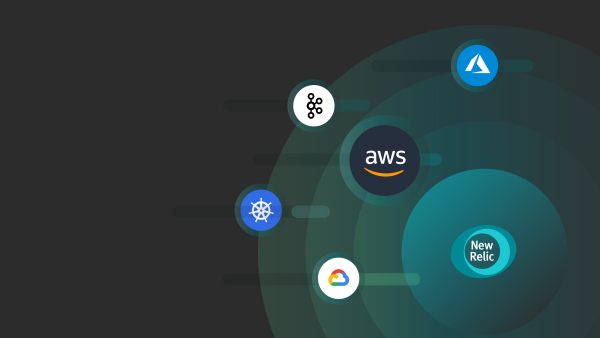Many of the world’s biggest enterprises now run part or all of their software environments in the Amazon Web Services (AWS) Cloud, and more companies migrate to AWS daily. That’s why, if you’re looking for a new IT job, a new role in your current organization, or want to continue to grow in your current position, earning an AWS certification can be a very smart investment.
In fact, according to Skillsoft’s 15 Top-Paying IT Certifications of 2022, the top salary of a cloud-certified IT professional is now $168,080. Even though the top salary on the list this year is $3,669 lower than last year, this salary represents a $9,047 increase over 2021’s salary of $159,033 for the top AWS certification. Enterprises clearly recognize that employees who earn AWS certifications know their stuff, and they also recognize what it takes to retain these employees.
It’s time for my 2022 update of AWS certifications, just in time for AWS re:Invent. Every year, AWS releases more certifications and updates existing ones. This year there’s more emphasis on advanced certification. AWS is back on top with its Certified Solutions Architect - Professional certification and has four other certifications on Skillsoft's list, holding 33% of the list! Certified Solutions Architect - Associate has moved down two spots, and the AWS Certified Cloud Practitioner is back on the list. There are two new AWS certifications this year: AWS Certified Security - Specialty and AWS Certified Big Data - Specialty. Specialty certifications are increasing in demand.
On Skillsoft's list, nine of the 15 certifications on are cloud-based. This is five more than last year, showing how cloud certification is a sought-after achievement. And security certifications are still making a major impact year after year.
My opinion is to focus on the AWS Certified Solution Architect - Associate and AWS Certified Security - Speciality certifications. This combination will offer the best career opportunity.
Even after reviewing the list of top-paying IT certifications, many people might still have nagging questions about an AWS certification: Is it really the right choice for your career? Which ones should you pursue, and in what order? What can you expect from each exam? Where do you start? And are there any certs you should not consider earning? Read on for some answers.

What is the AWS certification system?
Let’s begin with the big picture: AWS currently offers 12 certifications and organizes its certifications into four groups, starting with Foundational and advancing to Associate, Professional, and Specialty certifications. This image from the AWS Certification page shows the certifications in each group.

AWS core certifications explained
Now for the details! Here’s what you need to know about each of the six core certifications.
AWS Certified Cloud Practitioner
- Format: 65 multiple choice, multiple answer
- Length: 90 minutes
- Fee: $100
This foundational AWS exam covers the core principles of the AWS Cloud. You’ll answer questions concerning essential AWS services and features, including business use cases. The exam also covers AWS security and compliance fundamentals and requires you to demonstrate a working knowledge of AWS billing, support, and pricing. You should also expect questions about deploying resources and services in the AWS Cloud.
This AWS Certified Cloud Practitioner certification is perfect for anyone in a non-technical role who needs a general understanding of the AWS platform. For example, IT salespeople can learn to speak with confidence and authority when a conversation touches on a customer’s AWS investments. Also, the certification can help people in finance, management, and business roles communicate more clearly with their IT colleagues.
AWS recommends six months of AWS experience before taking this exam. Still, that experience can be in any capacity, including technical and non-technical roles (such as sales, management, or finance). In practice, your prep time is far more important for passing this exam. Set aside at least six hours for study and review.
AWS Certified Solutions Architect - Associate
- Format: 65 Multiple choice, multiple answer
- Length: 130 minutes
- Fee: $150
For this certification, you need to prove you know how to build and deploy systems in the AWS Cloud. The exam will ask questions about cloud-based solutions for deployments that follow strict requirements and require you to demonstrate a knowledge of architectural best practices. You’ll need considerable experience deploying, configuring, and managing compute, network, storage, and database services in AWS. I also strongly suggest entering this exam with a working knowledge of AWS security and compliance policies.
Before taking this exam, AWS recommends at least one year of deploying distributed systems at scale using AWS services.
AWS Certified Developer - Associate
- Format: 65 Multiple choice, multiple answer
- Length: 130 minutes
- Fee: $150
This AWS exam tests your ability to develop applications native to the AWS Cloud. You’ll need to show your ability to use the AWS SDK to interact with and optimize the AWS services you build into an application. Passing this exam also demands a functional understanding of code-level security practices, including credential creation and encryption strategies.
Before you take this exam, AWS recommends at least a year of experience maintaining applications in the AWS Cloud. You should also understand the core services, principles, and best practices associated with services on AWS. And you should have some experience creating applications for tools like Amazon DynamoDB, AWS Elastic Beanstalk, and AWS CloudFormation (among others).
Also, Amazon has announced that this exam is changing in February 2023.
AWS Certified SysOps Administrator - Associate
- Format: 65 Multiple choice, multiple answer
- Length: 130 minutes
- Fee: $150
Certify your ability to deploy, manage, and operate system resources in the AWS Cloud, including an understanding of what it takes to migrate on-premises workloads to the AWS Cloud. You should understand how to manage cloud systems for both fault tolerance and high availability. You should also be able to match resource deployment to requirements and to account for operational needs, such as security and cost control.
You’ll want at least a year of experience managing AWS-native applications for this certification. You’ll also want some experience gathering requirements and following AWS best practices for deployments and project lifecycle management.
AWS Certified Solutions Architect - Professional
- Format: 75 Multiple choice, multiple answer
- Length: 180 minutes
- Fee: $300
Prove your ability to build and deploy distributed systems in the AWS Cloud to spec, plus understand how to deploy them at scale with fault tolerance and high availability. This certification also requires the ability to deploy multi-tier applications to the AWS Cloud and build enterprise-scale cloud solutions with AWS resources while managing your cloud spend.
AWS no longer recommends earning the AWS Certified Solutions Architect - Associate certification before taking this exam. However, if you don’t already have years of AWS experience, I recommend working toward your Solutions Architect - Associate certification first. AWS strongly recommends more than two years of experience deploying distributed systems at scale using AWS services based on design requirements and best practices.
AWS Certified DevOps Engineer - Professional
- Format: 75 Multiple choice, multiple answer
- Length: 180 minutes
- Fee: $300
The DevOps Engineer certification is about testing your ability to manage distributed applications in the AWS Cloud, from provisioning to full operational management. You’ll face questions about continuous integration and continuous delivery (CI/CD) methodologies and automation best practices, including best practices for automating security and compliance checks. You’ll also need to show a working knowledge of monitoring and logging practices about the AWS platform.
While AWS no longer requires holding an AWS Certified Developer - Associate or AWS Certified SysOps Administrator - Associate certification before taking this exam, I recommend both. Unless you have years of AWS experience, working towards these other two certifications helps you greatly because they build the fundamental knowledge you’ll need for the professional-level certification. AWS does recommend at least two years of delivering applications in or managing AWS cloud deployments and some experience with automation best practices, including scripting or other programming.
Also, Amazon has announced that this exam is changing in March 2023.
AWS specialty certifications
AWS has six specialty certifications. Here’s what you need to know about each of these specialty certs.
AWS Certified Database - Specialty
- Format: 65 Multiple choice, multiple answer
- Length: 180 minutes
- Registration fee: $300
Demonstrate your ability to use various AWS database services to help accelerate and drive your organization’s business, including knowing how to design, recommend, and maintain AWS database services.
Before you take this certification, AWS recommends at least five years of experience with database technologies, at least two years of hands-on AWS experience, and some time spent working with relational and non-relational databases.
AWS Certified Advanced Networking - Specialty
- Format: 65 Multiple choice, multiple answer
- Length: 170 minutes
- Fee: $300
If you’re into complex networking projects, especially ones that span scalable AWS systems, then this cert is perfect for you. The exam requires you to know how to manage a network architecture for any service on the AWS platform and automate most networking tasks.
AWS suggests five years of experience managing networks and a firm understanding of networking concepts and best practices related to the AWS platform.
AWS Certified Security - Specialty
- Format: 65 Multiple choice, multiple answer
- Length: 170 minutes
- Fee: $300
This AWS exam is about advanced methods for securing the AWS Cloud platform. Candidates for this cert should be seasoned IT security experts who can demonstrate expert-level knowledge of data protection and encryption techniques for AWS environments. You also must demonstrate a mastery of AWS tools for implementing and managing cloud security.
Before taking this certification, AWS recommends five years if IT security experience and at least two years of hands-on experience securing AWS workloads and a minimum of five years of IT security experience.
AWS Certified Machine Learning - Specialty
- Format: 65 Multiple choice, multiple answer
- Length: 180 minutes
- Fee: $300
This certification emphasizes designing and deploying machine learning solutions to solve practical business problems. You can expect questions that ask you to choose the best machine-learning solution to a problem and why the chosen approach is better than others. You’ll also need to understand which AWS services are relevant to delivering a machine-learning solution. And you’ll need to know how to optimize your AWS services to deliver scalable, reliable, and secure solutions.
Before taking this exam, AWS recommends that candidates work in development or data science roles and have one to two years of experience using machine learning or deep learning on the AWS Cloud.
AWS Certified SAP on AWS - Specialty
- Format: 65 Multiple choice, multiple answer
- Length: 170 minutes
- Fee: $300
This certification validates your ability to design an SAP solution that runs on the AWS Cloud and emphasizes implementation, migration, and operation of SAP workloads on AWS.
This certification is unique in that you’ll need both AWS and SAP knowledge. AWS skills should include high availability and disaster recovery, AWS migration tools, security best practices, as well as multi-account and multi-region understanding. Your SAP knowledge should include SAP Basis and NetWeaver administration, supported SAP databases including SAP HANA, and sizing and identity management.
Before taking this exam, AWS recommends that candidate has five or more years of SAP experience and one or more years of SAP on AWS experience.
Building your AWS Certification plan
As a Solutions Strategy Director and AWS expert for New Relic, people often ask me in what order they should take these exams. I recommend the following sequence for starting and turbocharging your cloud career:
- AWS Certified Solutions Architect - Associate
- AWS Certified Developer - Associate
- AWS Certified SysOps Administrator - Associate
- Any specialty* AWS certifications that interest you
- AWS Certified DevOps Engineer - Professional
- AWS Certified Solutions Architect - Professional
*With the two additional specialty certifications on the list this year, you may want to consider one or both paired with the Solutions Architect - Associate. This may supercharge a career focused on security or big data.
Note that this route does not include the AWS Certified Cloud Practitioner exam, which isn’t terribly useful for anyone in a technical role. I recommend folks in technical roles begin with the AWS Certified Solutions Architect - Associate exam and go from there. This certification also covers topics you’ll see again in the Developer and SysOps Administrator exams, which makes it a great up-front investment for anyone planning to take all three associate exams.
The knowledge gained prepping for the database, network, and security specialty certifications will help you with the two professional-level certifications, but the others don’t offer that extra edge.
Preparing for AWS exams—today and in the future
The AWS platform has always been a hotbed of innovation and constant, often rapid-fire change. While there’s only so much AWS can do to address the effect of technology change on its exams, it does adhere to some guidelines that will keep your exam prep reasonably focused:
- AWS requires a new feature or service to be generally available (GA) for at least six months before allowing it to appear on an exam.
- As noted in its exam guides, AWS will discuss in broad terms which “topic areas and objectives” you’ll find on an exam, although it won’t discuss specific features and services.
- AWS “regularly rotates questions in and out” of its exams, but every question should remain within the exam’s stated topic areas and objectives.
As for the AWS exam prep process, you’ll want to see for yourself what’s available to get you ready for each exam. Based on my experience, however, serious and thorough preparation for an Associate-level exam requires 120 hours or more—and the Speciality- or Professional-level exams are even more demanding.
Many engineers, especially younger ones, get into the zone during their exam prep and take two, three, or even more exams in a matter of months. I know the feeling, but I strongly suggest resisting the urge to binge test. Instead, take a minimum of three to six months between each exam.
Consider when you’ll need to re-certify: You might be in the zone today, but what about three, six, or even nine years down the line? When the time comes, preparing to re-certify when you have a family, a career in mid-flight, and who knows what else happening in your life could become an overwhelming burden if you have multiple certifications expiring within a short period. A little foresight today can pay huge benefits throughout the rest of your career.
Stay focused on your career goals, plan and prepare carefully for these exams, and move ahead with confidence that you’ve got a winning—and lucrative—career-building strategy.
Best of luck in your AWS certification journey!
Next steps
- Interested in ways to monitor AWS? Learn about sending metrics for all AWS services and custom namespaces to New Relic.
- Come see us at AWS re:Invent.
- If you’re not already a New Relic customer, sign up for free. Your free account offers 100 GB/month of data ingest, one full-platform user, and unlimited basic users.

The views expressed on this blog are those of the author and do not necessarily reflect the views of New Relic. Any solutions offered by the author are environment-specific and not part of the commercial solutions or support offered by New Relic. Please join us exclusively at the Explorers Hub (discuss.newrelic.com) for questions and support related to this blog post. This blog may contain links to content on third-party sites. By providing such links, New Relic does not adopt, guarantee, approve or endorse the information, views or products available on such sites.



